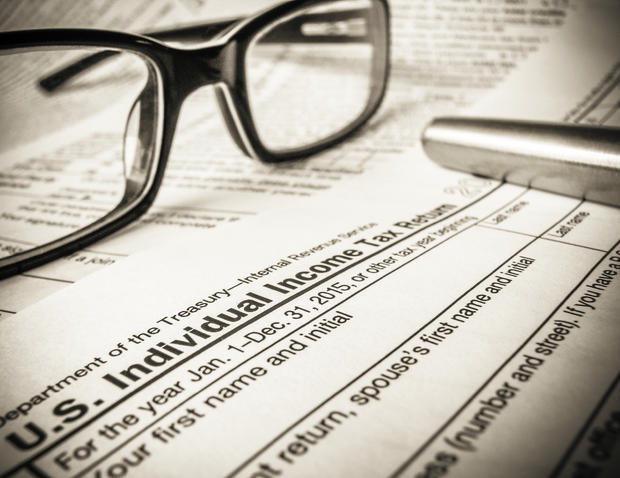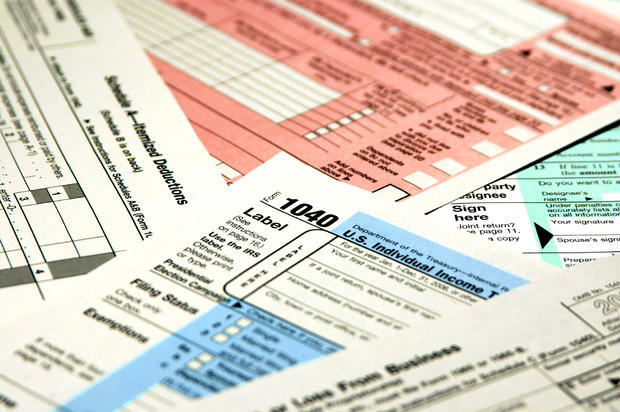How to avoid a tax audit
By Maryalene LaPonsie/MoneyTalksNews
Nobody wants an IRS tax agent knocking at the door and asking for a shoebox full of receipts. Unfortunately, there's no surefire way to avoid an audit.
However, you can sharply reduce your odds of an IRS inquiry by avoiding some common mistakes when filing your taxes.
Here's a look at seven mistakes that should be on your radar.
1. Hiring the wrong tax preparer
This mistake might occur before you even get your name on the tax return. Select a tax preparer who is incompetent or unethical, and he or she could spell big trouble for you.
If the IRS audits one of the returns the tax preparer filed and finds significant problems, the agency could decide to audit all the returns that person prepared for the year, or for the past several years.
Don't make this mistake. (Read our advice on how to select the best tax pro.)
2. Saying your hobby is a business
Let's say you breed and sell dogs, or sell blankets on Etsy, or resell garage sale purchases on eBay. At the end of the year, you realize expenses exceeded what you made and decide to deduct a tax loss from your "business."
However, do that for three or more years and the IRS is going to get suspicious. A business is something that makes money. If you haven't made money in three years, what you have may actually be a hobby.
The IRS doesn't allow business deductions for hobbies.
3. Filing certain schedules or forms
You might say the third item on our list isn't a mistake because, in many cases, there is no way to avoid it. For example, if you have a business, you need to file a Schedule C. And yet filing a Schedule C increases your chances of an audit.
However, it would be a mistake to file a Schedule C if you have an unprofitable business that is more like a hobby. It might also be a mistake to file a Form 5213 if you're not sure.
Form 5213 prevents the IRS from auditing you for the first five years of your business, and it is typically used when transitioning a hobby into a business.
This form allows you to claim losses from your hobby-turned-business, no questions asked. That is, until the five years are up, and the IRS comes calling to see what you've been up to.
4. Taking questionable deductions or credits
Experts generally agree that claiming excessive charitable contributions and claiming a home office are the two deductions most likely to raise red flags with the IRS.
If you donate a large percentage of your income to charity, be sure to keep careful records. Too many contributions, relative to your income, can be a problem. So think twice about inflating the value of those items you dropped off at the thrift store.
Keep careful records of all donations and be sure to get a written acknowledgement from any charity to which you donate $250 or more per year.
As for the home office, take the deduction to which you're entitled, but be ready to defend it if needed. The most important thing to remember is you can only deduct a home office if you use that space exclusively for business.
Under the category of credits, the Earned Income Tax Credit is most likely to get you in trouble, according to experts.
Back in 2013, the IRS came under fire for not taking enough action to curtail improperly awarded Earned Income Tax Credits. In a statement reported by multiple news outlets, the agency fired back by saying EITC claims were twice as likely to be audited as other returns. If you claim the EITC, consider yourself warned.
5. Claiming a loss from a rental
When housing prices were depressed, some people converted homes into rentals rather than selling them. Those who found the rent didn't cover the mortgage and taxes may have assumed they were entitled to take a deduction for the losses.
Not so fast. You have to either be an active participant in the management of your rental or a real estate professional to do that. The IRS has a long and confusing page with the details, but Nolo.com has a much clearer explanation.
Make sure you're eligible to deduct the losses before doing so.
6. Failing to claim all of your income
Thinking you can keep secrets from the IRS is a mistake.
You may think the government won't know about the money you earned freelancing on the side, but if the company you worked for files a 1099 form, the IRS knows.
You may think you can keep your alimony checks a secret, but if your spouse is reporting those payments on his or her return, the IRS knows.
You may think the interest you earn from foreign bank accounts is between you and that country's bankers, but if those nice bankers are sharing information with the United States, the IRS knows.
Don't take the chance of getting caught in a lie. Claim all your income. Then, the IRS won't have any discrepancies to note, giving it one less reason to flag your return for an audit.
7. Making math errors
The last mistake on our list is also the simplest mistake to avoid: math errors.
If you can't add and subtract correctly, the IRS might start wondering what else you got wrong in preparing your return. Avoid this audit trigger by using tax software or an online program that will virtually ensure the calculations are correct. If you earn less than $62,000, you can find free online tax prep through the IRS Free File program.







